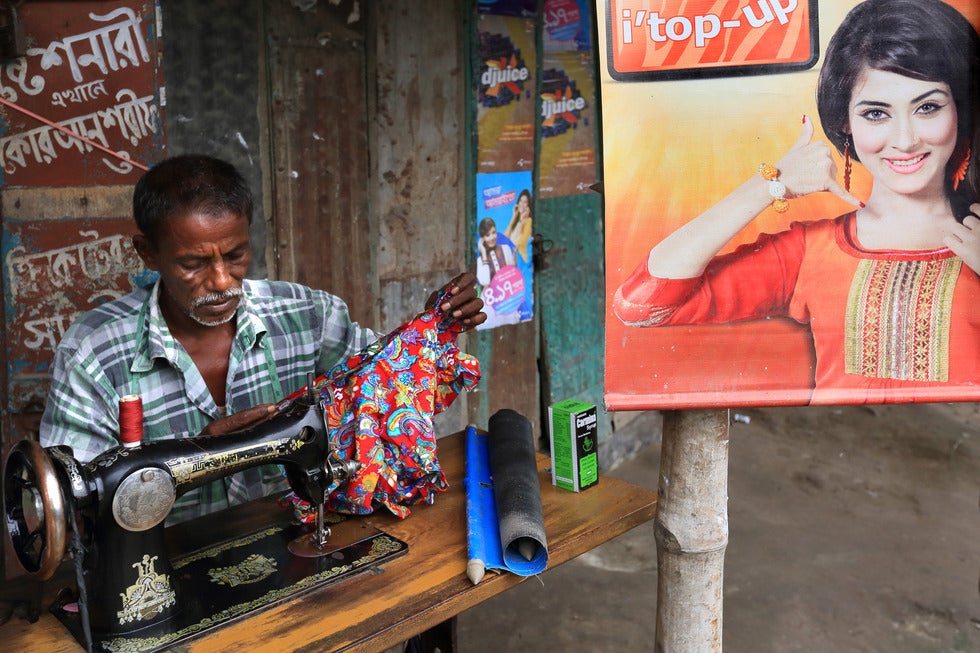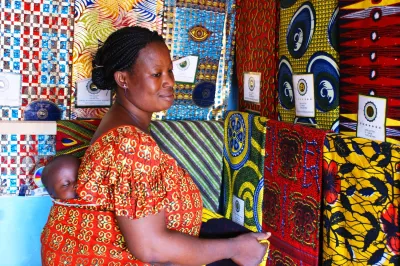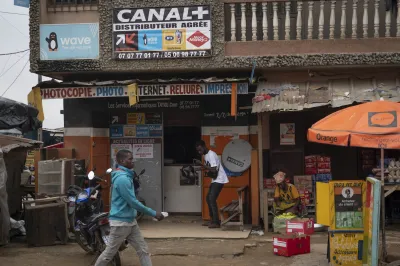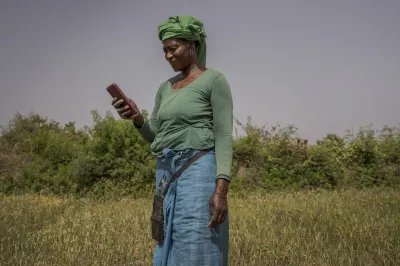What Can Donors Do to Ensure Responsible Digital Finance?
A recently published assessment of the mobile financial services landscape in Bangladesh included a side-by-side comparison of prices charged by service providers. Although just one piece of a much larger report, members of the USAID-funded project that wrote the report soon began receiving phone calls from providers requesting changes to the comparison table. They weren’t seeking corrections, but had decided to make their pricing more competitive after seeing their prices compared to those of competitors. Opaque pricing is prevalent in too many markets, resulting in less competitive products and weakened consumer confidence. As illustrated here, simple interventions by donors and other stakeholders can have a substantial impact in fostering more responsible marketplaces that better meet the needs of the poor.

It’s not news that financial inclusion has emerged as an increased priority for the development community. Well over half of the post-2015 Sustainable Development Goals under discussion depend on increased financial inclusion in one form or another and the World Bank has set a goal of drawing two billion people into a transaction account in order to achieve universal financial access by 2020. Nor is it news that digital financial services (DFS) have become widely viewed as the best channel for achieving these aims. But for digital finance to be the transformative tool we hope it to be, consumers must have greater confidence in the markets and providers that deliver those services.
CGAP’s recent Focus Note on this topic, "Doing Digital Finance Right: The Case for Stronger Mitigation of Customer Risks," makes a compelling case that consumer trust is just as good for business as it is for consumers. On its face this is obvious, but the painful reality is that providers too often focus on short-term incentives at the expense of long-term consumer trust and loyalty. We don’t have to look too far into the past to recall examples of providers offering unsustainable loans that customers could not repay and consequently resulted in failed businesses, lasting reputational harm to an entire industry, and consumers in deep financial distress. The Focus Note identifies a clear set of responsible digital finance initiatives industry and others can take to build deep and long-lasting consumer trust, a true “win-win-win … for consumers, the providers that serve them, and societies seeking more inclusive financial systems.”
Although we must continue to make the case that responsible digital finance is good business, we know that isn’t enough. Independent and well-resourced regulators, consumer groups, and other organizations are critical to ensuring the consumer protections afforded by law and regulation are actually followed and enforced. This doesn’t mean making it difficult for industry to serve the poor, but it does require meaningful incentives for them to do so responsibly. Unfortunately the institutions that can best look out for consumer interests are too often under staffed, under resourced, and under trained. Although building the capacity of these institutions can feel less exciting than investing in the latest financial technology innovations, it is just as essential.
For its part, USAID is working at global and market levels to foster regulatory and policy environments that enable innovation and new business models to reach the poor while ensuring they are treated fairly. We’re also committed to embedding digital payments across the entirety of our spending, including to beneficiaries of USAID funded social protection programs, because we believe doing so is better for consumers, helps build sustainable DFS ecosystems, and can improve our development outcomes, including those unrelated to financial inclusion. We’re also working closely with CGAP to build global momentum around the importance of implementing DFS responsibly and to highlight practical and common-sense means of doing so.
Donors can meaningfully impact the consumer trust gap in several important ways. First, donors can embed the responsible digital finance risk mitigation practices identified in the CGAP Focus Note into their financial inclusion activities, particularly when those activities include DFS providers. Second, technology is creating opportunities to enlist consumers more directly in the development of tools that build consumer trust and foster market transparency. At a recent CGAP event, for example, participants discussed opportunities to develop Yelp-like platforms that can provide opportunities for consumers to review specific agents. Third, donors can also help regulators connect with emerging technology-based regulatory and supervision approaches that can help them monitor markets with fewer staff resources.
With these last two points in mind, USAID’s Global Development Lab is working to launch a challenge prize later this year to identify innovative technology solutions that can increase consumer confidence and help low-capacity regulators stay ahead of the curve. Fourth, donors can play an important convening role within individual markets by bringing together consumers (and their advocates), industry, and regulators to facilitate recurring dialogues about consumer risks and solutions for mitigating them. Increased coordination among regulators themselves (e.g. financial services regulators, insurance regulators, and telecommunications regulators) is also important. And fifth, donors can continue to support technical assistance and efforts to deepen our understanding of the best ways to mitigate consumer risks.
USAID and other donors have unique opportunity, and responsibility, to ensure financial inclusion gains are long-lasting and aren’t wiped out suddenly because they’ve been built upon a weak foundation. As donors work together with industry, regulators, and consumers we can ensure this doesn’t happen. We can start by making sure consumer confidence is placed at the center of our efforts.




Comments
Good day to all. Am from the
Good day to all. Am from the Philippines, working to help the 80% unbanked. Can you help me with training materials, concepts, and other ideas how i can use mobile money or responsible finance mobile to help the poor here in our country.
Thanks so much
Rolly
Add new comment